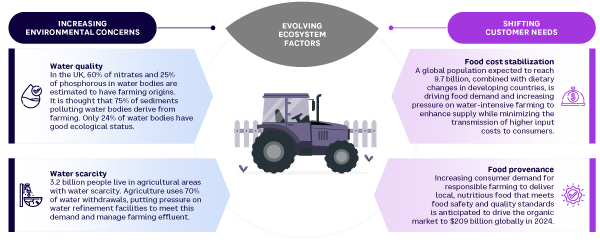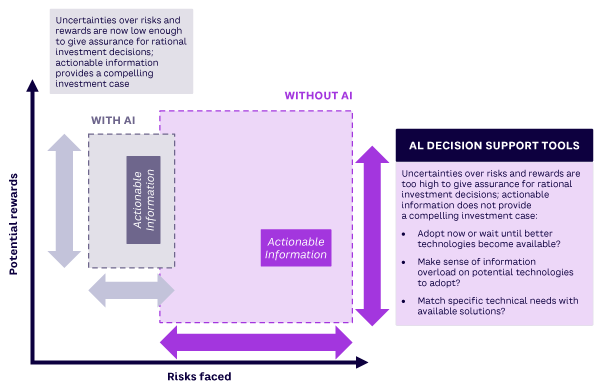Changes in agriculture, farming, and food production/security are needed (see Figure 1). Advancements in agricultural technologies (agri-tech) will be key to addressing the challenges faced by farmers and our world. Not surprisingly, agri-tech has been booming over the past decade, attracting significant investment from venture capitalists and outpacing investments in many other sectors.

Farmers, commodities suppliers, investors, and governments are well aware of the need for innovation to support more sustainable practices and protect scarce resources. However, due to the complexity and individuality of farming systems, knowing what tech to invest in and under what circumstances (not to mention how to realize benefits) is a significant challenge.
Each farm has unique geographies, landscapes, climates, soils, crops, and land-use histories.
There are multiple factors at play when considering how to maximize crop quality and yields and the many factors that will affect them going forward. When you add variables like climate change, regulations, geopolitics, financing, and rapid rates of technology innovation, decision makers find themselves facing an overwhelming amount of information that limits their ability to make optimal decisions for themselves, society, and the planet in terms of where to innovate and what to adopt.
This decision paralysis limits innovation investments, particularly in areas where technologies are rapidly evolving. (“Should I commit now to a solution that may become obsolete or delay the adoption decision in the expectation of future solutions being better value for my money?”)
Recent rapid advances in AI are producing tools that can help, starting with decisions about where to innovate and what to adopt. These tools can also provide information on the broader direction of relevant emerging technologies, informing adopt-now versus adopt-later decisions. Figure 2 shows how AI tools can support innovation decisions.

[For more from the authors on this topic, see: “AI Can Help Farmers Meet the Innovation Adoption Challenge.”]








